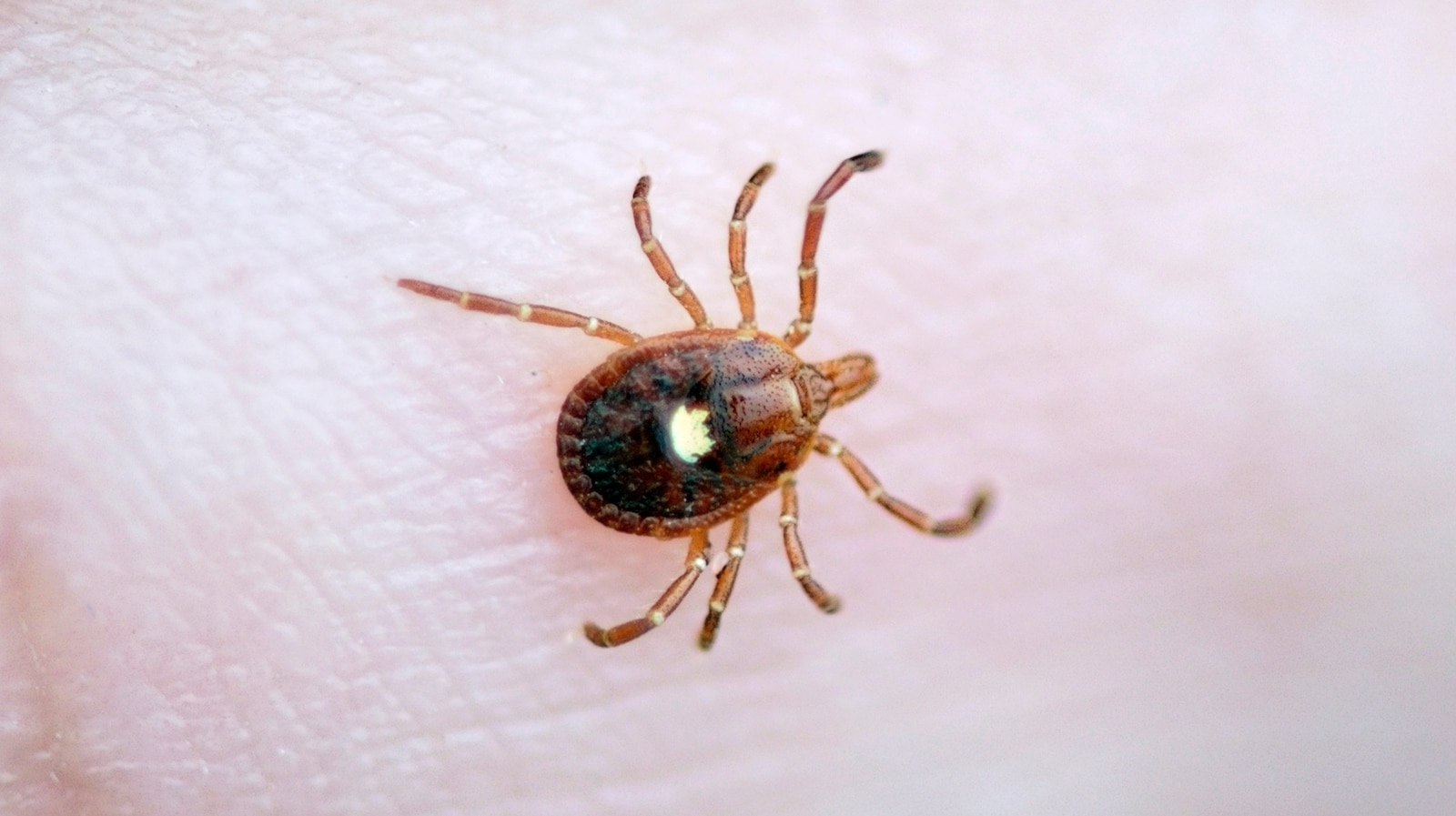- Home
- Forums
- Discussion topics
- Other specific illnesses discussions
- Infections: Lyme, Candida, EBV ...
You are using an out of date browser. It may not display this or other websites correctly.
You should upgrade or use an alternative browser.
You should upgrade or use an alternative browser.
Alpha-gal syndrome: Meat allergy linked to tick bites
- Thread starter Jaybee00
- Start date
hinterland
Senior Member (Voting Rights)
https://www.theguardian.com/news/2018/dec/11/mysterious-allergy-to-meat-alpha-gal-lone-star-tick
The discovery of new diseases often follows a pattern. Scattered patients realise they are experiencing strange symptoms. They find each other, face to face in a neighbourhood or across the world on the internet. They bring their experience to medicine, and medicine is sceptical. And then, after a period of pain and recalcitrance, medicine admits that, in fact, the patients were right.
That is the story of the discovery of CFS/ME and Lyme disease, among others. But it is not the story of alpha-gal allergy. An odd set of coincidences brought this bizarre illness to the attention of researchers almost as soon as it occurred.
The story begins with a cancer drug called cetuximab, which came on to the market in 2004. Cetuximab is a protein grown in cells taken from mice. For any new drug, there are likely to be a few people that react badly to it, and that was true for cetuximab. In its earliest trials, one or two of every 100 cancer patients who had it infused into their veins had a hypersensitive reaction: their blood pressure dropped and they had difficulty breathing.
Andy
Senior Member (Voting rights)
Merged thread
The rate of Americans developing a rare meat allergy from tick bites is rising, researchers say, and may have already impacted as many as 450,000 people.
New data released by the Centers for Disease Control and Prevention (CDC) on Thursday shows a steep increase in cases of alpha-gal syndrome.
The allergy triggers a possibly life-threatening reaction to several types of meat or animal products.
US scientists have traced alpha-gal to saliva from the lone star tick.
https://www.bbc.co.uk/news/world-us-canada-66333478
The rate of Americans developing a rare meat allergy from tick bites is rising, researchers say, and may have already impacted as many as 450,000 people.
New data released by the Centers for Disease Control and Prevention (CDC) on Thursday shows a steep increase in cases of alpha-gal syndrome.
The allergy triggers a possibly life-threatening reaction to several types of meat or animal products.
US scientists have traced alpha-gal to saliva from the lone star tick.
https://www.bbc.co.uk/news/world-us-canada-66333478
Last edited by a moderator:
Other ticks can give you alpha gal allergies as well.Lone Star ticks are aggressive. My understanding is that they don't just quest by waiting to latch on; they actively hone in on animals and go after them.
I wonder if we'll see an increase in Norway too. Some apparently "grow out of" their allergies, while for others it can become more sensitive. Since the reactions typically occur hours after intake of red meat, it can be easy to miss the association and most doctors are unaware that it is even possible to be allergic to meat.
Last edited:
You would be correctAs far as I can tell, AGS as a vector-borne disorder has only been identified and reported since the early 2000's. I wonder how long it was around "infecting" people before that?
If I won that dark lottery, I'd want to know.
I think it can be very hard to spot in a patient if one has never heard of it. Even if the patient has clear food allergy/GI symptoms, alpha-gal may not be in the set of allergy test a doctor orders simply because they don't know.
I had a patient who had discovered a pattern in her symptoms that they only occured on days they had meat for dinner. This made her think she had an allergy to meat. She googled it, and found that meat allergies was a thing and something one could develop as an adult. Her GP refused to believe her, but had to concede it was a thing when it was possible to order tests for alpha-gal allergies. When the tests came back positive the GP at least had the decency to apologize for their lack of knowledge and bad attitude.
Merged thread
-------------------

 abcnews.go.com
abcnews.go.com
The man died in September 2024 just hours after consuming a hamburger.
-------------------

New Jersey man believed to be 1st known death from red meat allergy linked to tick bites
A New Jersey man is believed to be the first documented death from alpha-gal syndrome, a meat allergy triggered by tick bites.
The man died in September 2024 just hours after consuming a hamburger.
Last edited by a moderator:

Lone Star Tick Surveillance
Explore county-level surveillance data to see where the lone star tick is found in the U.S.
The generally accepted view is that climate change is behind the spread of the Lone Star tick - not to mention the AGS and and at least five other TBDs that can accompany it.
There is evidence that nature may have been nudged just a little.
Reportedly, in the late '60's, tens of thousands of Lone Star ticks - injected with radioactive material intended for tracing purposes - were released along migratory bird flyways that could take them all over. Each tick could produce 1,000 to 3,000 larvae.
Birds are ticks' Ubers.
There is evidence that nature may have been nudged just a little.
Reportedly, in the late '60's, tens of thousands of Lone Star ticks - injected with radioactive material intended for tracing purposes - were released along migratory bird flyways that could take them all over. Each tick could produce 1,000 to 3,000 larvae.
Birds are ticks' Ubers.
